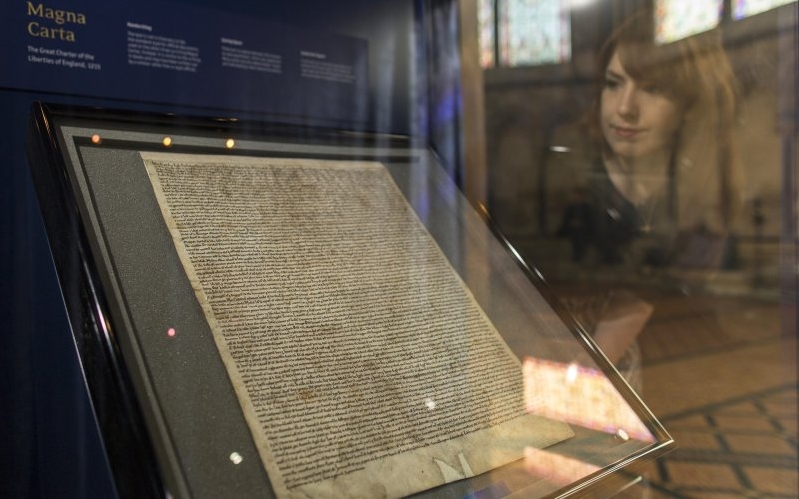
The United Kingdom celebrated the 800th anniversary of the Magna Carta, a document that has helped shape modern democracy in the United States and around the world.
According to a report from BBC News, British Prime Minister David Cameron marked the occasion at a ceremony in Surrey attended by Queen Elizabeth II, members of the royal family, the Archbishop of Canterbury, U.S. Attorney General Loretta Lynch and members of the American Bar Association. The charter was signed in Runnymede by King John and a group of rebellious barons in 1215, and the Americans placed a memorial of that event at that location in the 1950s.
"Why do people set such store by Magna Carta? Because they look to history," Cameron said. "They see how the great charter shaped the world, for the best part of a millennium, helping to promote arguments for justice and for freedom."
Cameron added that the document also altered forever "the balance of power between the governed and the government." He also mentioned in his speech that he wanted to create a British version of the Bill of Rights based on the Magna Carta to replace the Human Rights Act.
"It falls to us in this generation to restore the reputation of those rights," Cameron said. "It is our duty to safeguard the legacy, the idea, the momentous achievement of those barons."
According to BBC News, the Archbishop of Canterbury, the Most Reverend Justin Welby, stated in a speech that the document had "set the bar high for all of us today." In addition to talking about Archbishop Stephen Langton's role as mediator behind the document, he elaborated on the failure of the Church of England to fight for social justice in the past.
"From the support for enclosures to the opposition to the Great Reform Act, to the toleration of all sorts of abuse, with humility, we recognize these failings," the archbishop said.
Even though the Magna Carta lacked modern legal concepts such as "trial by jury" and "habeas corpus" (the right not to be held indefinitely without trial), BBC legal correspondent Clive Coleman contended that it upheld the idea that "the law is not simply the whim of the king, or the government."
"It is the great egalitarian legacy of Magna Carta, that all are equal under the law, and all can be held to account," Coleman wrote. "It is that idea that gave birth to so many of our rights and freedoms, to parliamentary democracy, fair trial, and a series of controls on the abuse of arbitrary power."
Lord Dyson, the chairman of the Magna Carta Trust, told the BBC that the document was "a symbol of democracy, justice, human rights and perhaps above all the rule of law for the whole world." He noted that the modern British legal system still recognizes some of its clauses.
"A few clauses of Magna Carta are still part of our law, including famously the provision that no free man shall be taken or imprisoned except by the lawful judgment of his peers or by the law of the land; and to no-one will we sell, to no-one will we deny or delay right or justice," Dyson said.
According to BBC News, Princess Anne rededicated the US memorial, stating that the Magna Carta "provides us with one of our most basic doctrines - that no person is above the law." In the UK, the Magna Carta is known as The Great Charter when it was reissued in 1217; that name is used to distinguish it from the smaller Charter of the Forest, which came out at the same time.
"In recent history and even today we see in many parts of the world that power without the rule of law can lead to human suffering of terrible proportions," Princess Anne said. "But it takes all of us to stand up for these principles."
According to BBC News, only 4 of 13 original copies of the Magna Carta are known to exist today. Two of them are in the British Library, while the rest are in Salisbury Cathedral and Lincoln Cathedral.







